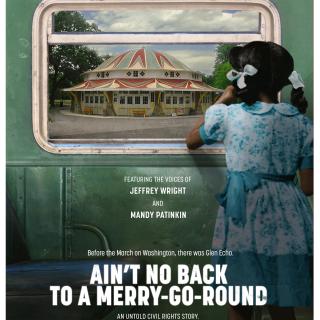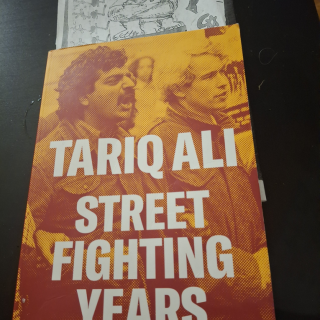Advertisement
Dennis Kucinich was a hero of mine.
His newly released book, The Division of Light and Power (Finney Avenue Books), is all about how he became a hero to me nearly five decades ago when he was first a Cleveland City Councilman and then, for one glorious but controversial term, was the mayor of Cleveland, then the largest and most powerful city in Ohio.
The book is well worth reading if you, like me, were old enough to be aware of Kucinich's rise to power. If you are younger and want to learn about the era, the book will enlighten you as well.
I was living 60 miles to the south in my hometown of Ashland, Ohio. We got all of our TV and much or our radio from Cleveland, not to mention the Cleveland Plain Dealer, then the largest and most powerful newspaper in Ohio.
I came to admire Dennis Kucinich because he stood up for the forgotten people of Cleveland, Blacks and Whites, against the dominant forces of the city – its elected officials who largely pandered to the business community, and the Corporate Establishment, led by the Cleveland Electric Illuminating (CEI) Company that wanted to monopolize the sale of electricity to city residents.
Cleveland had its own public utility, Muny Light, that served a portion of the city in competition with CEI. The latter had to keeps its rates down to compete with Muny. CEI wanted to buy Muny in order to eliminate the competition, raise rates and make more money for its stockholders.
At age 23, the diminutive, mop-haired Democrat Kucinich ran for ward councilman in 1969, knocking on hundreds of doors. When the votes were counted, the incumbent tried some chicanery to cheat his way to victory, but the Kucinich forces blocked the effort and won by a handful of votes.
Kucinich took office committed to representing the people not the powerful. That did not go down well with the political establishment who were used to go along, get along types.
Muny suffered more than its share of power outages, partly because it could not tap into CEI's power in a crisis situation. Kucinich saw that as an attempt by CEI to beat down Muny and force the city to sell.
Kucinich was as ambitious to move up the political ladder as he was to serve his constituents. He made a maverick bid for U.S. Congress, but fell short.
He managed to win the Cuyahoga County Clerk of Courts office and left City Council, but retained his interest in keeping Muny out of CEI's grasp.
The city's political leaders blew hot and cold over selling Muny. Its sale would be on and its sale would be off. CEI kept trying to make the deal.
As the 1970s wore on, a deal seemed imminent. From his Clerk's position, Kucinich continued his vehement opposition.
The sale was on the verge of going through when the Nuclear Regulatory Commission was persuaded to block it for the time being.
City Council voted to sell. Kucinich and others passed petitions to put the measure on the ballot in 1977, but it was ruled off.
Kucinich decided he had an issue on which to get elected mayor and gathered enough signatures to appear on the ballot. In a three-way primary, Kucinich and Democratic State Rep. Edward Feighan survived and Republican incumbent mayor Ralph Perk was eliminated.
With the help of the endorsement of the Cleveland Plain Dealer, where Kucinich once worked as a copy boy, the so-called Boy Mayor, age 31, was elected to lead the city in 1977.
As mayor, Kucinich was no more of a go along, get along politician than he had been as Councilman. He fought the establishment and stood up for regular people and the needy just as before. He battled tenaciously to keep Muny out of CEI's clutches.
This led to government by chaos. Kucinich's strength was fighting for issues. He was a legislative type, not an administrative or executive type. Things got so disjointed that citizens passed petitions to recall him as mayor and got enough signatures to put the issue on the ballot. Yet he survived, winning a narrow victory.
Winning a second term in 1979 proved impossible. George Voinovich, a popular local politician who had served in the Ohio legislature, offered himself up as a genial go along, get along politician and sent the Boy Mayor packing. Voinovich, a Republican, made deals that endeared him to the Establishment and eventually became a two-term governor of Ohio. Much of Ohio's current economic stagnation and Republican political corruption can be blamed on Voinovich, who quickly forgot his urban roots as governor.
Nonetheless, Muny was kept out of the hands of CEI under the Voinovich Administration and remains, nearly five decades after the takeover attempts began, a public utility, now known as Cleveland Public Power. CEI officially gave up its takeover attempt after two decades.
Kucinich takes and richly deserves credit for saving the people's electric utility from the corporate clutches.
The book is deeply sourced with an extensive list of references and a detailed index. Kucinich's writing chops are evident. The holder of bachelor's and master's degrees in journalism and communication from Case Western University brings eyewitness details to each chapter and spices them up with verbatim quotations and conversations that took place in the heat of his many battles.
On a personal level, he admits that his ardent pursuit of political power caused his first two marriages to end and were bad for his health. He recounts that the criminal element in Cleveland put out more than one hit on him.
In the early 1970s, I reached out to get acquainted with Kucinich and through the good auspices of his top adviser, union leader Bob Weissman, who had helped me in my unsuccessful campaign for state representative in 1970. I got to have lunch with Kucinich at his favorite Cleveland haunt, Tony's Diner.
During his time as mayor, I persuaded him to speak to my journalism class at Bowling Green State University and attend a reception at our home afterward.
On a personal level, I will always be grateful to Dennis Kucinich for those kindnesses.
However, over time Kucinich became less of a hero to me as he became a gadfly for radical policies that could never be enacted. He became all talk and little action.
In the 1980s, Kucinich resurfaced as a state legislator and then a U.S. Congressman from northeast Ohio. His days in DC were ended in 2012 when the callous Republicans in Columbus placed him and U.S. Rep Marcy Kaptur of Toledo in the same district. Kaptur won the primary comfortably.
He dabbled in Presidential politics, but was never able to generate any traction. He stayed in the race long after he was a viable candidate to the consternation of many, including me, but he did win many fans to his progressive point-of-view around the country and in some very elite circles, including the entertainment business. He became a national media personality in the process. He often appeared on the Fox News Channel as a commentator. The right-wing hacks running Fox wanted to offer some semblance of balance by featuring a Democrat. Cynics would say that Kucinich was picked because he was far out of the mainstream of the Democratic Party and that his regular presence on Fox undermined the mainstream elements of the party.
Kucinich put his hat in the ring in the Democratic Party primary for governor in 2018, but finished a distant second to Richard Cordray, making a decent showing only in northeast Ohio.
Forty-four years after he won the Cleveland mayorship and 42 years after he lost it, Kucinich put his hat in his hometown's ring again this year, entering the primary for his old job. At age 75, Kucinich remains an intellectual powerhouse and an indefatigable campaigner.
The smart money says he will make it through the crowded primary, but probably will not return to the mayor's chair as a dynamic, younger, connected, contemporary candidate will win the general election. That is, unless a major game-changing issue arises. Kucinich thinks the issue is rising crime.
Kucinich is about as likely to win as the Cleveland Indians are to win the pennant. The Cleveland baseball team, to be renamed the Guardians next season, is asking for millions of city tax giveaways to keep from moving out of town when its lease expires in two years.
Roldo Bartimole, Cleveland's muckraking journalist extraordinaire, has documented in his Point of View newsletter and www.havecoffeewillwrite.com website the hundreds of millions of dollars worth of tax money given away to the Indians, Browns and Cavaliers professional sports teams' owners to keep them in town, mostly to pile up losses and frustrate fans.
The Boy Mayor once rode his opposition to selling Muny Light into capturing the mayor's chair. Could fate bring Cleveland a Mature Mayor, one Dennis Kucinich, winning his old job by running on a platform of opposing massive tax giveaways to greedy baseball owners and their unimaginatively re-nicknamed team?
Kucinich served as a "Guardian" of Muny Light back in the day. Could Kucinich become the "Guardian" of the city's treasury and deny the greedy owners of the soon-to-be Cleveland Guardians another gigantic helping of welfare for millionaires?
If so, Dennis Kucinich would be my hero again.
(John K. Hartman writes the Columbus Media Insider column for the Columbus Free Press. Send your comments to ColumbusMediaInsider@gmail.com.)
(Copyright, 2021, John K. Hartman, All Rights Reserved)



